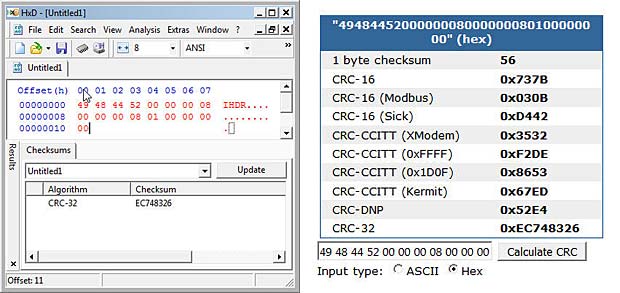

Is 10 1050 0099 7603 1234 5678 9123 a valid bank account number, or did I made a typo in it? But what if you had to find a typo in a long chain of digits, that you have no prior idea what they should really be like? Say, like a bank account number. For starters it uses just a few dozens of possible letters, out of 256 possible byte values. This is because English language has quite a lot of redundancy, that is not every sequence of letters has a meaning, and there is a lot of structure in it, which lets you almost immediately see an odd character. If I accidentally change a letter in an English sentence, there's high chance that it will lead to something noticeably wrong, and thus you'll be able to detect it. A checksum is a nice way to solve a difficult problem of identifying typos or errors in a message. As "D" in ACID stands for "Durable", the InnoDB wants to make sure that the data it wrote is then read back intact.įor this purpose, InnoDB employs checksums for data pages and redo log by default using the CRC-32C algorithm. To name just a few: a neutrino passing by through your data-centre could flip a bit on the disc, a stray cat could pull the plug from the server when it was halfway rewriting a part of data with new data, or perhaps some other process overwrote the data (Notepad.exe?:)).

There are various reasons why something could go wrong, and all of them are serious enough, that it's better to panic, than to continue pretending that everything's ok. When InnoDB stores your data on disc, and later reads it back to hand it to you, it wants to make sure that it wasn't corrupted meanwhile, and that what it read is what was intended to be written. Therefore it's a good idea to look at trends on the whole spectrum of setups, rather than focus on some small change on particular one - unless you want to fine-tune the implementation to this particular platform. There are many reasons for this and they have to do with complicated heuristics used by modern CPUs when they cache, predict, fetch, and decode your code, all of which depend on the code's layout in memory w.r.t. You may get exactly the same result each time you recompile given source on given compiler on given machine, yet be astonished to see +33% or -20% change once you do some trivial change like adding asm("nop":::) somewhere, or changing the linking order.

How does MySQL 8.0.27 compute CRC32-C faster?īefore we proceed, a word of caution about charts like above: even though I took extra care to run 100 iterations, noting median and max, checking they are not far apart (as you can see - or perhaps can't see because it's so small - the difference between max of 100 runs and the median is negligible - literally 0 for ARM64), and repeating the whole procedure twice to see if it replicates, there is still a huge source of "non-determinism" - the compilation.I want this post to be as accessible, as possible, so it starts slow with building intuitions, thus you might want to scroll down past the things you already know to the section you're interested in: This is a single-threaded test which mimics computing a CRC32-C for 16KB data pages as quickly as possible. If (xhr.readyState = 4 & xhr.In this post I'd like to explain a big optimization in CRC-32C computation, inspired by a paper by Gopal, V., et al.: "Fast CRC computation for iSCSI Polynomial using CRC32 instruction" from Intel, which landed in MySQL 8.0.27 and hugely increases the processing speed (the improvement for ARM64 architectures is more pronounced for reasons explained later in the post): Results of merge_innodb_tests-t -gtest_repeat=100 "-gtest_filter=*BM_CRC32_6_16338" for release build before and after the patch.

We have removed CORS restriction so you can use direct access to hash calculator in your javascript applications via AJAX. Output - for output type (empty, "json" or "plain") Via params to avoid processing of our url parser. If you have string that contains complicated urlencoded characters you can send it directly The another cool thing is that you can specify "json" or "plain" mode into URL and you will get only HASH in response. Type string that you need to encode with algorithm according to next schema:įor example to visit page that contains hash of "hello world" you can just visit url: You can use direct access to this page from your browser address bar.


 0 kommentar(er)
0 kommentar(er)
